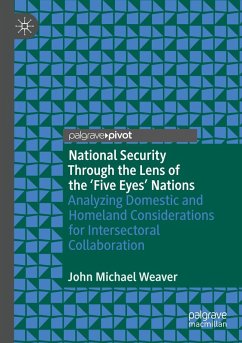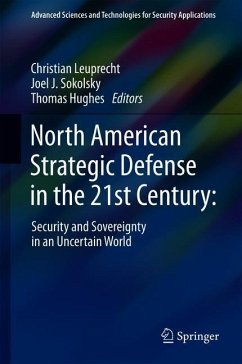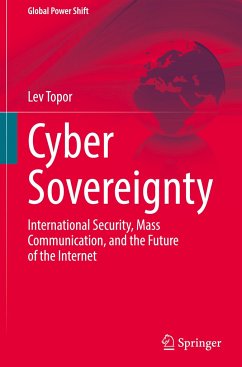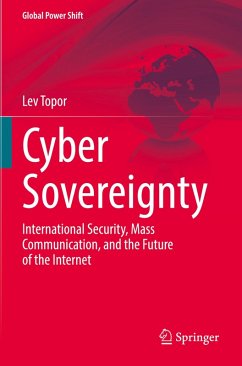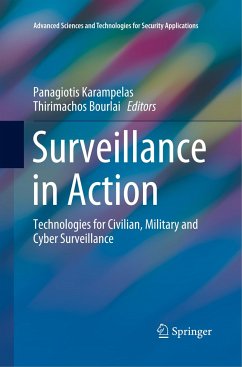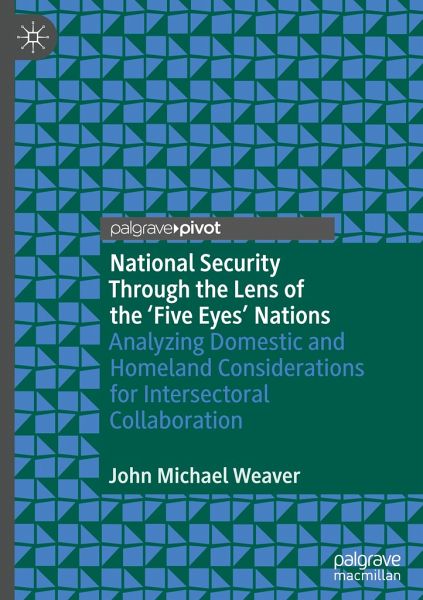
National Security Through the Lens of the 'Five Eyes' Nations
Analyzing Domestic and Homeland Considerations for Intersectoral Collaboration
Versandkostenfrei!
Versandfertig in 6-10 Tagen
34,99 €
inkl. MwSt.
Weitere Ausgaben:

PAYBACK Punkte
17 °P sammeln!
This book analyzes the 'Five Eyes' nations' concerns and policies relating to national security threats through an interdisciplinary theoretical engagement with the Political, Information, Security and Economic (PISE) Model. Through the analysis of secondary data sources such as scholarly and government reports, policy documents, press releases and interviews, the author analyzes the five case studies-Australia, Canada, New Zealand, UK, and the USA-to determine how and why nations use the PISE variables to shape favorable homeland security outcomes, to determine what the points of homeland int...
This book analyzes the 'Five Eyes' nations' concerns and policies relating to national security threats through an interdisciplinary theoretical engagement with the Political, Information, Security and Economic (PISE) Model. Through the analysis of secondary data sources such as scholarly and government reports, policy documents, press releases and interviews, the author analyzes the five case studies-Australia, Canada, New Zealand, UK, and the USA-to determine how and why nations use the PISE variables to shape favorable homeland security outcomes, to determine what the points of homeland intersectoral collaboration are among the 'Five Eyes' nations. In so doing, Weaver determines that although the 'Five Eyes' countries have concerns about homeland security and each, individually, identifies threats and hazards, they do also employ collaborative measures to build resilience and increase efforts to prepare for anticipated security breaches.



